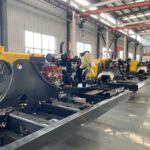Introduction
Choosing the right construction excavator for your project is crucial for ensuring efficiency, safety, and cost-effectiveness. With numerous models and types available, selecting the appropriate excavator can be daunting. This comprehensive guide aims to help you understand the factors to consider when choosing a construction excavator, the different types available, and their specific uses. By the end of this blog, you will have a clearer understanding of how to match your project’s needs with the right equipment.
Understanding Construction Excavators

What is a Construction Excavator?
A construction excavator is a heavy-duty machine used primarily for digging and moving large amounts of soil, rock, and other materials. Excavators are essential on construction sites for a variety of tasks including trenching, foundation digging, and material handling. They come in different sizes and configurations, each suited to specific types of projects and environments.
Key Components of a Construction Excavator
- Boom: The long arm that extends from the body of the excavator, allowing it to reach deep into the ground.
- Stick (or Dipper Arm): Attached to the boom, it provides additional reach and digging capability.
- Bucket: The attachment at the end of the stick used for scooping and lifting materials.
- Cab: The operator’s compartment where controls are housed.
- Tracks or Wheels: Provide mobility and stability to the machine.
- Engine: Powers the excavator and its hydraulic systems.
Types of Construction Excavators
- Crawler Excavators: Known for their excellent traction and stability, making them suitable for rough terrain.
- Wheeled Excavators: More mobile and faster on paved surfaces, ideal for urban environments.
- Mini Excavators: Compact and versatile, perfect for smaller projects and tight spaces.
- Long Reach Excavators: Equipped with an extended arm for deep digging and demolition projects.
- Suction Excavators: Use a powerful vacuum to remove soil and debris, often used for delicate excavation tasks.
Factors to Consider When Choosing a Construction Excavator
Project Requirements
Understanding the specific requirements of your project is the first step in choosing the right excavator. Consider the following:
- Size of the Project: Larger projects may require more powerful and larger excavators, while smaller projects might benefit from the maneuverability of mini excavators.
- Type of Material: The density and type of material you will be digging or moving can influence the choice of bucket and power needed.
- Site Conditions: Evaluate the terrain and space constraints of the site. For rough or uneven terrain, a crawler excavator might be best, whereas a wheeled excavator is more suitable for smooth, paved surfaces.
Excavator Size and Power
Excavators come in various sizes, from compact mini excavators to large, heavy-duty machines. The size and power of the excavator should align with the demands of your project:
- Mini Excavators (1-5 tons): Ideal for small projects, landscaping, and tight urban spaces.
- Midi Excavators (5-10 tons): Suitable for moderate construction tasks, including residential construction.
- Standard Excavators (10-45 tons): Versatile and powerful, these are commonly used in commercial construction.
- Large Excavators (45-80 tons): Designed for heavy-duty industrial projects, mining, and large-scale construction.
Attachments and Versatility
The ability to switch between different attachments can significantly enhance the versatility of an excavator. Common attachments include:
- Buckets: Various sizes and types for different materials.
- Hydraulic Hammers: For breaking concrete and rock.
- Augers: Used for drilling holes.
- Grapples: Ideal for material handling and demolition tasks.
- Thumbs: Enhance the gripping capability of the bucket for handling irregular materials.
Fuel Efficiency and Environmental Impact
Fuel efficiency is a critical factor in managing operational costs. Modern excavators come with advanced engines that offer better fuel efficiency and reduced emissions. Consider choosing machines that comply with the latest environmental standards to minimize your project’s ecological footprint.
Operator Comfort and Safety
Operator comfort and safety features are essential for maintaining productivity and reducing the risk of accidents. Look for the following features:
- Ergonomic Controls: Simplify operation and reduce operator fatigue.
- Climate-Controlled Cab: Enhances comfort in extreme weather conditions.
- Visibility: Good all-around visibility for the operator to monitor the site.
- Safety Features: Includes backup cameras, alarms, and reinforced structures to protect the operator.
Budget and Total Cost of Ownership
While the initial purchase price is a significant factor, consider the total cost of ownership, which includes maintenance, fuel, insurance, and depreciation. Investing in a more expensive but reliable and fuel-efficient machine can save money in the long run.
Detailed Comparison of Excavator Types
Table: Comparison of Different Types of Construction Excavators
| Type | Ideal Use Cases | Advantages | Disadvantages |
|---|---|---|---|
| Crawler Excavator | Heavy-duty projects, rough terrain | Excellent stability, powerful digging | Slower movement, higher ground impact |
| Wheeled Excavator | Urban projects, paved surfaces | High mobility, faster travel speed | Less stability on rough terrain |
| Mini Excavator | Small-scale projects, tight spaces | Compact size, versatile | Limited digging depth and power |
| Long Reach Excavator | Deep digging, demolition projects | Extended reach, specialized for deep tasks | Limited versatility, higher cost |
| Suction Excavator | Delicate excavation, utility work | Minimal damage to surrounding areas | High cost, specialized use |
How to Assess Your Project Needs
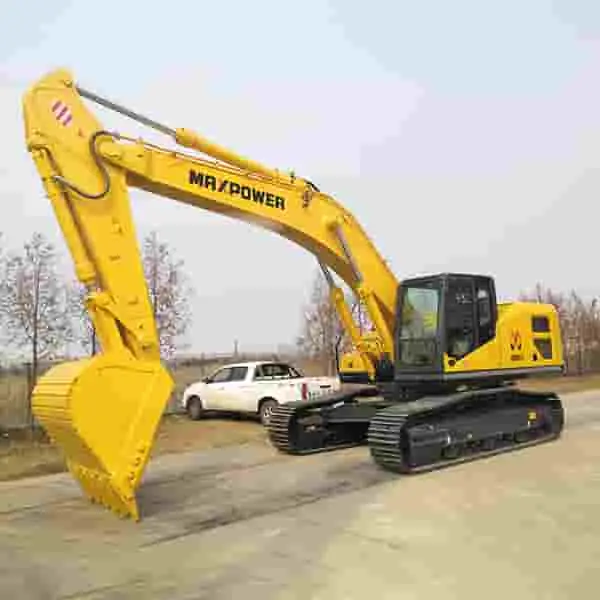
Site Analysis
Conduct a thorough site analysis to understand the terrain, space constraints, and accessibility. This will help determine whether a crawler, wheeled, or mini excavator is most suitable.
Task Specificity
Identify the specific tasks the excavator will perform, such as digging, lifting, breaking, or drilling. This will guide you in selecting the right size and type of excavator, as well as the necessary attachments.
Future Projects
Consider the potential for future projects when choosing an excavator. Investing in a versatile machine with multiple attachment capabilities can provide long-term value.
Conclusion
Choosing the right construction excavator for your project involves a careful assessment of your project requirements, understanding the different types of excavators available, and considering factors such as size, power, attachments, fuel efficiency, and operator comfort. By following these guidelines, you can make an informed decision that enhances productivity, safety, and cost-effectiveness on your construction site.
FAQ
What are the main types of construction excavators?
The main types of construction excavators include crawler excavators, wheeled excavators, mini excavators, long reach excavators, and suction excavators.
How do I choose the right size of excavator for my project?
The size of the excavator should match the scale of your project. Mini excavators are suitable for small projects and tight spaces, while standard and large excavators are ideal for commercial and heavy-duty projects.
What attachments are available for construction excavators?
Common attachments for construction excavators include buckets, hydraulic hammers, augers, grapples, and thumbs. Each attachment serves a specific purpose and enhances the machine’s versatility.
What factors should I consider for operator comfort and safety?
Key factors for operator comfort and safety include ergonomic controls, climate-controlled cabs, good visibility, and advanced safety features such as backup cameras and alarms.
How can I ensure the environmental efficiency of my construction excavator?
Choose excavators with advanced engines that offer better fuel efficiency and reduced emissions. Ensure the machine complies with the latest environmental standards to minimize its ecological footprint.
What is the total cost of ownership for a construction excavator?
The total cost of ownership includes the initial purchase price, maintenance, fuel, insurance, and depreciation. Investing in a reliable, fuel-efficient machine can reduce overall costs in the long run.
Can I use one excavator for multiple types of projects?
Yes, choosing a versatile excavator with interchangeable attachments can allow you to use the same machine for various types of projects, enhancing its utility and cost-effectiveness.
How do site conditions affect the choice of excavator?
Site conditions such as terrain, space constraints, and accessibility can influence whether a crawler, wheeled, or mini excavator is most suitable. Conduct a thorough site analysis to make an informed decision.
What are the benefits of using a crawler excavator?
Crawler excavators offer excellent stability and powerful digging capabilities, making them ideal for heavy-duty projects and rough terrain. However, they are slower and have a higher ground impact.
Are wheeled excavators suitable for all types of terrain?
Wheeled excavators are best suited for urban projects and paved surfaces due to their high mobility and faster travel speed. They are less stable on rough terrain compared to crawler excavators.


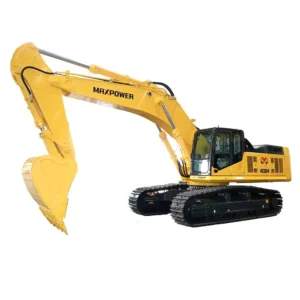
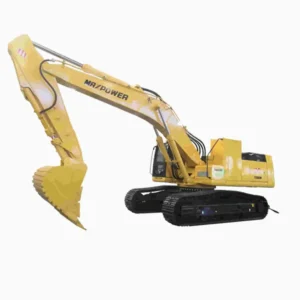
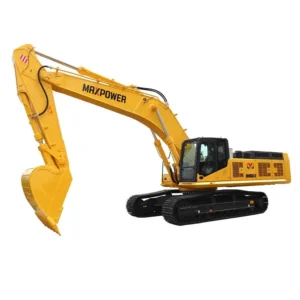
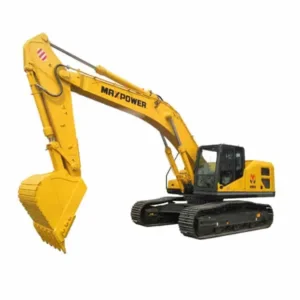
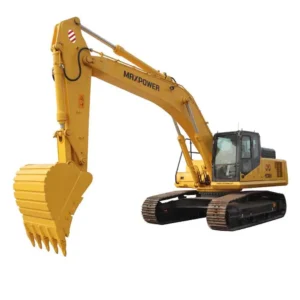
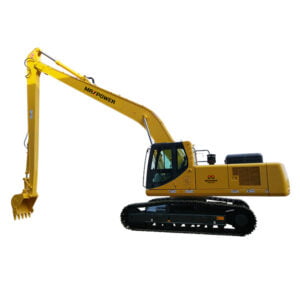
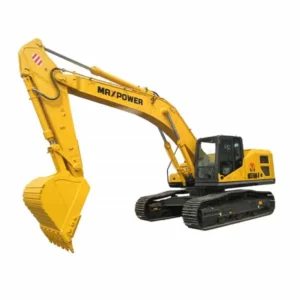
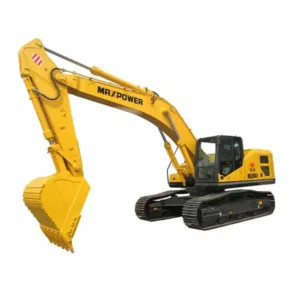
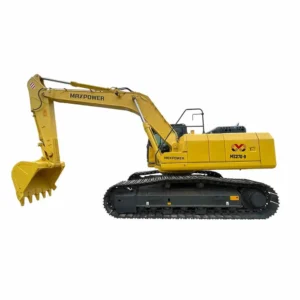





-150x150.webp)
